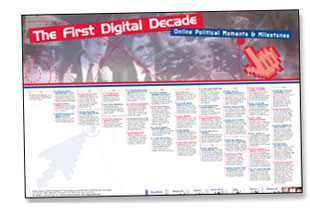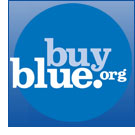Years ago in my Senate days, I enjoyed the opportunity to employ a few interns each year, letting them do my work for me for no pay just for the experience. Is this a great country or what? For many, their internship was their first experience in Washington. For me, it was a heady power trip. Neverthless, it was an honor and a joy to help mold young minds, and show them the ropes of life on Capitol Hill.
This post started as a ‘way to go’ for one former intern, but in writing it I started thinking about all of them. I’ve stayed in periodic contact with some of them, lost touch with others, and (I’m sorry to say) I’ve certainly forgotten a few. I hope they recall their brief time under my tutelage fondly, that it was fun, and maybe even practical to their later endeavors.
So then, where are they now? Let’s turn to my bookmarks and to Google. And can we lure any of them here to my blog for an update? Read on and see!
 Jessen Yu
Jessen Yu – Jessen was my original intern from way back in my Kennedy days. He organized my messy clip pile (those files are still in my closet today!), and helped me build many of my earliest web site. That was in 1995, it’s on
his resume. Today he’s a programmer with a company called Genetic Programming where he is performing research “as applied to the automatic design of analog electrical circuits, control systems, and antennas”. I taught him all about genetics. OK, not really.

Jessica Yu – Yes, you read that name right. Jessen enjoyed his internship so much, he sent his younger sister our way. Jessica built fine web sites, and she did it with a unique style that most of the guys lacked. After college she got into journalism I think and last I heard was in Hong Kong working as a graphic artist for the Wall Street Journal.
 David Sirota
David Sirota – David passed his final exam of finding his way to the Capitol Building in DC, and had his wisdom teeth out during his time with me. He went onto an impressive career of his own on the Hill as a Communications Directory to House members and Committees, and has now become a prolific and excellent writer (see his recent article:
Top Billings: How a Montana Democrat bagged the hunting and fishing vote, and won the governor’s mansion), and a
regular ‘policy wonk’ contributor to Al Franken’s radio program.. I’d like to say I taught him how to write, but I didn’t.
 Robbe Richman
Robbe Richman – Robbe is President and founding partner of
Articulated Impact, a Washington DC web development and marketing company. I taught him how
to express himself, no, not really.
 Ethan Shapiro
Ethan Shapiro – There’s a picture on my basement wall, of Ethan, myself, and Sen. Patty Murray of Washington. Ethan had built Senator Murray a new web site, and he was MY intern, so we both got thanked. In the photo she doesn’t reach our shoulders, it was a good day for feeling tall. I see Ethan in my buddy list, and know from his site that he’s continued in a career in technology. I expect he misses his Mac.
Melanie Ho – Went on to become the President of the UCLA Bruin Democrats, and won a
Gold Shield award in 2000.
Dan Orr – Dan stays in touch and even sends Christmas Cards and postcards from his travels. He returned to academia where I think he plans to stay forever.
Chris Green – stayed in the Senate a long time, went to law school and became an Esquire, and recently returned to the Senate. We taught him to love the Senate.
Greg Yates – also stayed on the Hill, first for Sen. Boxer, then to the House side I think. Greg, where are you?
If you’re among the former interns listed here, please comment! Share your memories! If you’re a former intern that I’ve forgotten, I’m sorry! I’m an aging idiot and my memory is failing. Remind me, and I’ll update this post to include you.
Like this:
Like Loading...
 Where does the time go? Ten years ago, thanks to some dumb luck, good help, and fortuitous timing, I helped to make Sen. Edward Kennedy the first member of Congress with a web site. The office had taken its first steps online more than a year previously, first on dial-up bulletin board systems, then an ftp directory, some usenet newsgroups, and eventually onto the Senate’s new gopher server. But 1994 was the year of the web. The letters WWW took on a whole new meaning, and thanks to the efforts of Eric Loeb and John Mallery at MIT, in May of 1994 Senator Kennedy became the first member of Congress with a home page on the World Wide Web.
Where does the time go? Ten years ago, thanks to some dumb luck, good help, and fortuitous timing, I helped to make Sen. Edward Kennedy the first member of Congress with a web site. The office had taken its first steps online more than a year previously, first on dial-up bulletin board systems, then an ftp directory, some usenet newsgroups, and eventually onto the Senate’s new gopher server. But 1994 was the year of the web. The letters WWW took on a whole new meaning, and thanks to the efforts of Eric Loeb and John Mallery at MIT, in May of 1994 Senator Kennedy became the first member of Congress with a home page on the World Wide Web.

 I’m doing a lot of reviewing lately, and tonight my topic is Survivor. When this show aired it’s first season, we didn’t watch it. And for weeks among family and friends and the water cooler we found ourselves left out of the biggest TV buzz of the season. And so, determined not to let that happen again, our family has become dedicated Survivor fans. Tonight, Chris has won the 9th season,
I’m doing a lot of reviewing lately, and tonight my topic is Survivor. When this show aired it’s first season, we didn’t watch it. And for weeks among family and friends and the water cooler we found ourselves left out of the biggest TV buzz of the season. And so, determined not to let that happen again, our family has become dedicated Survivor fans. Tonight, Chris has won the 9th season,  If someone encouraged you to visit
If someone encouraged you to visit 





